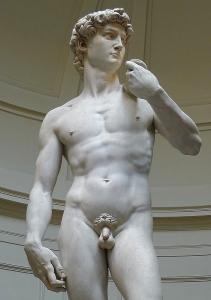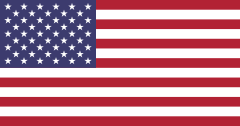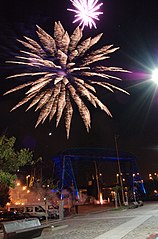 It is always particularly painful when the 4th of July falls on a Sunday. Too many US American churches have enough difficulty remembering whom it is they have come to worship when they are confronted with American flags in the sanctuary. It has long been my contention that such flags have no place in any church, but I have suffered too many bruising debates on this subject over the years to pursue it once again in this essay. Suffice to say that for me there should never be an American flag in any Christian sanctuary. The God we worship is the God of all people, not merely US Americans, as hard as that theological reality is to grasp for many.
It is always particularly painful when the 4th of July falls on a Sunday. Too many US American churches have enough difficulty remembering whom it is they have come to worship when they are confronted with American flags in the sanctuary. It has long been my contention that such flags have no place in any church, but I have suffered too many bruising debates on this subject over the years to pursue it once again in this essay. Suffice to say that for me there should never be an American flag in any Christian sanctuary. The God we worship is the God of all people, not merely US Americans, as hard as that theological reality is to grasp for many.
However, this particular July 4, 2021 brings to us a text that directly comments on the follies and dangers of overt nationalism. Saul has died on Mt. Gilboa, his suicide the result of a vast defeat at the hands of the hated Philistines. His son and potential heir to the throne, Jonathan, David’s close friend, has also been killed on the mountain. Shockingly, while this ignominious defeat is taking place, David is living in a Philistine city, given to him by the Philistine king, Achish of Gath. We have been told that David was more than willing to join his Philistine masters in battle against his own people of Israel, but he is prevented from doing so by certain suspicious Philistine lords who fear David’s wiles could lead him in the midst of the struggle to switch sides and fight against Philistia after all (1 Sam.29 tells the story). Saul and Jonathan’s death brought from David a fine and memorable poem (2 Sam.1:17-27) designed to announce his final abandonment of the Philistines, his complete loyalty to Israel, and his abiding love for Saul and his son.
As a result of David’s cleverness and undoubted move toward the kingship of the land, he first becomes king of the south of the country, his own homeland, by being crowned at Hebron. For seven years he wins the favor of an increasing number of Israelites, especially the former followers of Saul. Yet David knew well that Hebron could never be the capitol of a united Israel, since it had too many connections to David and his family. He needed a spot more centralized geographically, and a place that was free of any overt familial connections either to Saul or to David. He found such a place in the city of Jerusalem, long a Jebusite stronghold, bearing no clear connections to northern or southern Israel. And its near impregnable location, fronted by a massive valley ending in a 2000 foot promontory, itself bounded on three sides by thick forests and essentially flat desert, made the city the perfect place for David’s new capitol. However, the Jebusites, an ancient and unaffiliated tribe, stood in his way. It had long been their city, and David had no tribal or familial claim to it. But David was determined to have the city for his own.
Though the lectionary collectors leave it out, the key to an understanding of what happens when David attempts to capture the city is to be found in the odd and mysterious 2 Sam.5:6. “And the king went, and his men with him, to Jerusalem, to the Jebusite, the inhabitant of the land, and he said to David, ‘You shall not enter here unless you can remove the blind and the lame,’ which is to say, ‘David shall not enter here!’” And 2 Sam.5:8 goes on to say that the blind and lame are “despised by David,” and because of that fact of David’s hatred of the blind and the lame, a phrase arose in Israel: “No blind man or lame shall enter the house,” the house here meaning the temple of YHWH. Attempts to understand what all this may mean have been legion, but none appears to solve the question of David’s utter abhorrence of the blind and the lame. However we may seek for a reasonable explanation of this enigmatic event, one cannot help thinking of the pure hatred of the original inhabitants of what became US America that lead the primarily white settlers to plunder and steal the land that for centuries had been the homeland of scores of native peoples. Just as David did not allow anyone or anything to deter his capture of Jerusalem, so the early white settlers of US America reduced those they met to the level of vermin in order to satisfy their lust for the rich lands they had found from the Atlantic to the Pacific oceans, the land that eventually became US America. It is a dark story of the “founding” and “settling”of the nation on the backs of thousands of native Americans, a story that too many modern Americans refuse to recognize or accept as they celebrate the history of their country each July 4. 
One possibly plausible explanation of the meaning of the odd 2 Samuel 5:6 comes from the famous Israeli archaeologist, Yigael Yadin. He discovered a text from the Hittites, a powerful group that inhabited much of the plains of what is now modern Turkey in the middle of the 2nd millennium BCE, that records the ceremony for the swearing in of troops. In the ceremony a blind woman and a lame man are set before the new Hittite soldiers, who are warned that if they do not perform their warrior duties to the full their fate will be exactly that of the two unfortunates who stand in front of them. Thus, Yadin suggests, it might be that the Jebusites displayed the blind and lame on the ramparts of the city, accompanied by a curse against any who dared attack the city. That could explain why David “despised the blind and the lame.”
Even if that explanation is a possible one, it does not for a moment lessen the abuse and degradation of those who are blind and lame. They remain figures of scorn, less than human obstacles for the cruel desires of a king who will allow no hurdles to dissuade him from his goal of absolute rule over Israel. After David captures Jerusalem from its owners, he “called it the city of David…and David grew greater and greater, and YHWH of the Armies with with him” (2 Sam.5:10). Throughout history, the victors in wars have always claimed loudly that God was with them. In World War I the German armies went to the fight wearing belt buckles that said “Gott mit Uns,” “God is with us.” Voltaire in his scathing and hilarious satire, Candide, paints a scene where two armies battle to the death, leaving scores of corpses on the field of struggle, “and both sides retired to their tents, sending up Hosannas to God for their great victory.” David’s bloody capture of Jerusalem is merely another example of a warrior eviscerating a basically innocent foe and thanking God for the monstrous victory.
We in US America are currently in a struggle for the soul of our nation. Many wish to sweep under the proverbial rug any notion that this country is anything less than supremely virtuous and pure among the nations. Our destruction of the natives who preceded us and our abuse of African descendants in slavery should not in any way be considered as a negative claim against our virtue. Others, however, myself among them, know that the history of our country must by necessity include hard looks at the multiple ways we have created a society of deep divisions and painful inequities due to our blinded use and abuse of persons of color who have always been among us. If we do not and will not take such a look, we doom ourselves to an unchanging cycle of divisions and hatred among our citizens. Our hatred of “the blind and the lame,” those who are “not one of us,” those “not of our kind” can only lead us away from the world that God has in mind, a world of justice and peace where all are equally welcomed and equally valued. Empires built on hatred and exclusivism cannot last, and have not lasted in the pages of history. David’s capture of Jerusalem, his assault on another people’s city, along with his hatred of the blind and the lame, set the tone for his empire, an empire doomed to destruction. This July 4, I urge you preachers to take the clearest of looks at our celebration of US America and make it plain that all nations have vast work to do to confront their hatreds and prejudices, both of which played enormous roles in the founding of those nations. Let this year’s fireworks shine a bright light on the harder truths of our history, lest we fail to address the fullness of our story, both its virtues and its obvious vices.
(Images from Wikimedia Commons)











